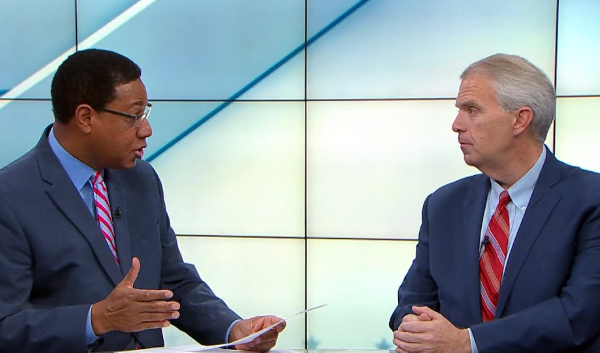Bruce Moore is the news director for WREG-TV, the Nexstar station in Memphis. He shapes the organization’s news coverage and sets the editorial direction of the station. In addition to his role as a newsroom leader, he has more than a decade of experience as a reporter, which he uses to offer advice on storytelling.
“Know your audience,” Moore said. “Also, know your story, and actively listen. When you know your story backwards and forwards, and you know the direction you want to take before you start an interview, you become a better interviewer with more pointed questions, and thus become a great storyteller.”
Moore says the most common reporting mistake he sees in the work of less experienced journalists is a lack of research. “You can’t shine a light on anything if you don’t know what you’re talking about, and believe me, it shows when you don’t know what you’re speaking on.”
But he warns against those who try to fake it.
“Don’t act like you know the answer to everything. I get it–you’re young and you have something to prove–but don’t interrupt experienced people when they’re explaining things, and don’t be afraid to ask questions, no matter how dumb they may seem.”
Though TV news is a visual medium, Moore also says that great storytelling requires great audio.
“Sound is critical to capturing the essence of the story,” Moore said. “Make sure that you’re capturing the person’s voice clearly, and if there are background noises that add to the overall theme of the story, such as jets practicing in the background, or a busy supermarket, that really tells the story and further engages your audience.”
Moore says he encourages his team of reporters and producers to embrace the art of storytelling and use it to bring important issues to light.
“Journalism is a hard, demanding, and even dangerous job, especially in today’s world,” Moore said. “However, it’s worth it when you look back and remember all of the interesting people you’ve met, and the stories that you contributed to that saved lives.”








